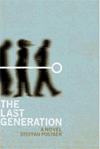Racism in advertising: A sick flag over America?
July 8, 2008
The Race Cards. Can you spot the ad?
What to make of the new Six Flags campaign? You don’t need to go far to get an opinion. Go online or ask anyone who’s seen it. It’s polarizing work.
The ads feature a rowdy young Asian, who loudly interrupts uber-lame scenes yelling “One flag! No Fun!” At subsequent images of an exciting park ride, he returns, exhorting: “Six flags! More Fun!” Each spot is more or less the same. Crap activity gets a low flag. Park rides get six. It’s not a bad idea. Using the park icon as a rating system for summer fun (or lack thereof) is solid. And if not for the blatant stereotyping (Chinese? Japanese? Korean?), I’d give the concept four or five flags.
But there’s the matter of the screaming Asian. On a base level, he’s what makes the spots stand out. But like Al Jolson, belting out tunes in black face, the man feels drawn from something pernicious -World War II propaganda. He’s Charlie. Or the Chinese Dry Cleaner. Would these spots deliver without the exaggerated caricature? I’m sure the agency looked at countless guys. And I’m sure he was the funniest. Regardless, using him in that way was, in my opinion, wrong.
But am I wrong? When Krusty the Clown resorts to aping a Chinese waiter to get laughs, is that permissible use of the stereotype? In this case, it’s satire. Krusty is a desperate buffoon. The audience (us and his) loves to hate him. Like Archie Bunker, this lovable loser teaches us a lesson about the human condition and our character defects. Or not. Sometimes I just think Krusty is one hilarious bastard. Going full circle, how come Jolson got no leeway here? Is it because he was advocating racism with his performance?
In any event, it’s pretty clear advertising does not have the same freedom to offend as entertainment. Since we are not choosing to watch the Six Flags commercial, we are offended to have this material thrust into our living rooms.
Remember the hullabaloo over the maybe homophobic Snickers commercial aired during the Super Bowl? If that bit played on a Fox sitcom it probably wouldn’t have gotten a laugh. As a TV commercial, on the big stage, it became a cause celebre.
Finally, even the creators of content operate and are judged by different standards. Would the “Funny Asian Guy” draw as much negative publicity (in our industry, anyway) if he were a Crispin Porter creation? The Burger King creeps a lot of people out and baiting stereotypes is just one of the reasons why. “Wake up with the King” was a campaign that clearly pushed homophobia buttons in young men. But instead of wanting him off the air ASAP, we accept the Burger King as a perverted, sadistic weirdo.
So why not the Funny Asian Guy? Maybe it’s all too subjective to have a legitimate debate. Of hard-core pornography, Potter Stewart shunned an actual definition: “I know it when I see it,” he famously said.
I kind of feel that way about the Funny Asian Guy.







 The Happy Soul Industry
The Happy Soul Industry The Last Generation
The Last Generation